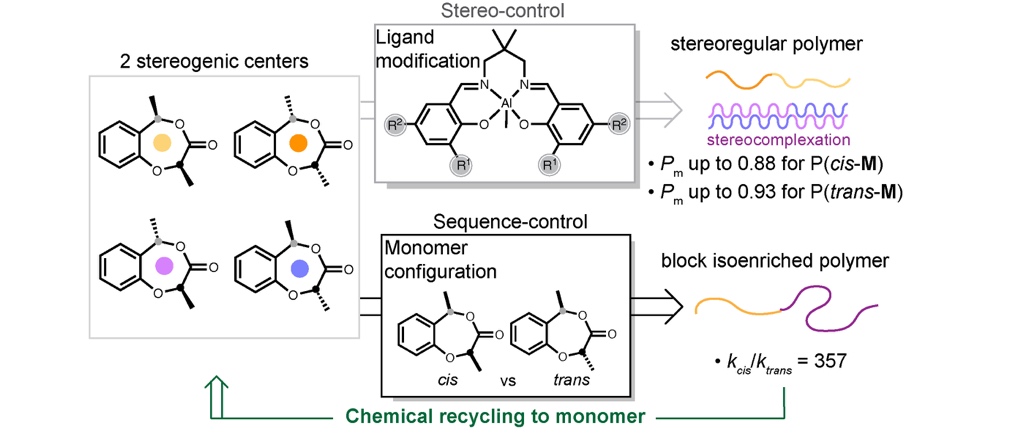Monomer design strategy has become a powerful tool to access chemically recyclable polymers with desired and diverse properties. The presence of two or multi stereogenic centers in one monomer offers a new dimension to fine-tune the polymer performance. However, it’s still a formidable challenge in synthetic polymer chemistry to achieve precise stereo- and sequence-control over polymer microstructure.
Recently, Zhu research group reported a stereo- and sequence-controlled polymerization of BDPO-based monomers with two stereogenic centers (M) to furnish an isoenriched block P(cis-M)-b-P(trans-M) (Pm up to 0.88 for P(cis-M), Pm up to 0.93 for P(trans-M), and kcis/ktrans = 357). Notably, P(cis-M2)666-b-P(trans-M2)286 delivered impressive toughness and ductility comparable to the commodity plastic polyolefins. More importantly, these various materials could fully convert to the single monomer M. The establishment of stereo- and sequence-controlled polymerization not only provides an effective and robust strategy to tailor the polymer property on molecular level, but also delivers the various chemically recyclable materials capable of converting back to a single monomer.

This work is published on Nature Chemistry, titled as “High-Performance Recyclable Polymers Enabled by Stereo- and Sequence-Controlled Polymerization”, with Prof. Jian-Bo Zhu and Prof. Zhongzheng Cai as corresponding authors and Ph.D. candidate Meng-Yuan Wang as the first author. This work is financially supported by the National Key R&D Program of China, the National Natural Science Foundation of China, and the Fundamental Research Funds for the Central Universities.
